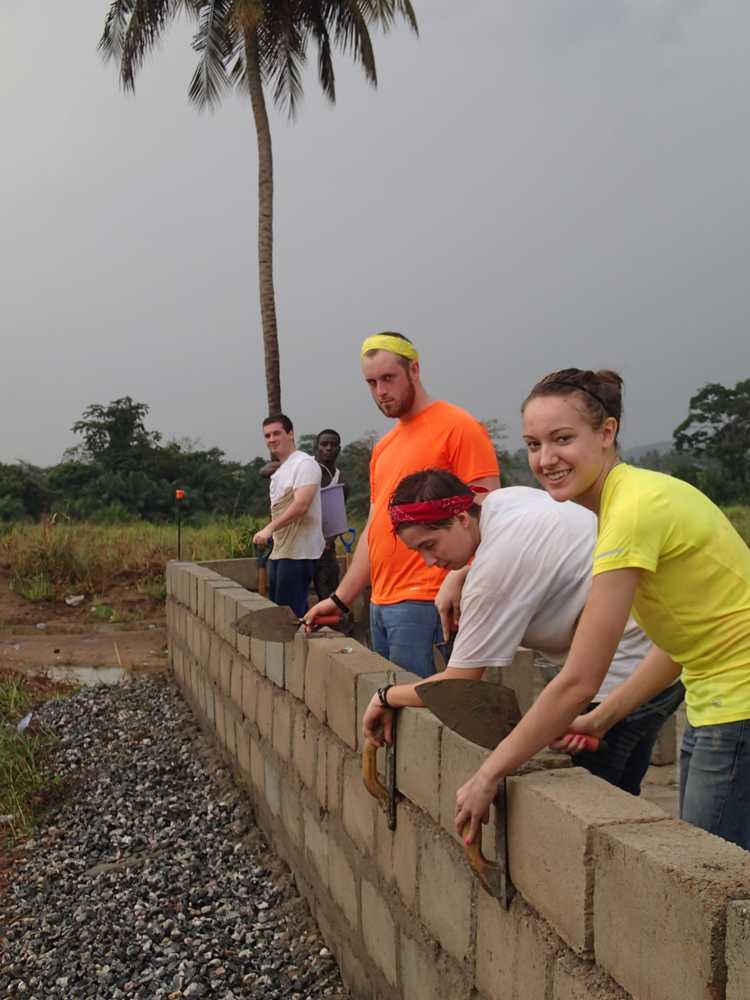Over winterim, various students from the University of Wisconsin-Platteville in Engineers Without Borders-USA traveled to Africa for an 18-day trip, where they worked with the locals to build a new primary school.
The group of seven students prepared for the trip by participating in a workshop with their advisor Dr. Samuel Owusu-Ababio, where they were taught everything they would need to know while building on site in Ghana.
This is the second phase out of three building trips for the EWB group.
They will be traveling back to Ghana in August to complete the school that they started back in January 2011.
To assist with the cost of the trip and the materials for building the school, the organization puts on fundraising events.
The Color Run, held back in April, was a big success and also happened to be one of those particular fundraising events.
In addition to the fundraising, they applied for a $600 grant from PACCE.
“The NAVA Primary School is the largest project the EWB-UWP has been involved with,” projects lead and senior civil engineering major Frank Kaminski said.
The building will consist of eight classrooms, an administrator’s office, a lunchroom and a library.
“If you’re interested in helping people, you should really join,” projects education lead and freshman industrial engineering major Scout Harrison said.
Two hundred and fifty African students will be benefiting from this new primary school each year.
However, working outside of their country did provide the students with various challenges from time to time.
Not only did a language barrier exist but also a style of working obstacle, as well.
“They don’t have some of the same codes and regulations for building that we do, and they couldn’t understand why we were doing what we were doing,” sophomore English major Bonnie Allen said. “It really allows you to see how other people think, being immersed into another culture.”
Finding volunteers in Africa was difficult when they first began the program.
However, after the initial launch of the program, many people offered to volunteer and assist with the program, but the EWB team was forced to turn away a certain amount of overwelming applicants.
“They don’t work to save money; they work to have money for food that day,” Kaminski said. “Africa has some of the happiest people who would do anything for you. The best experience I took from this was working with the people and [gaining] the friendships I’ve made with the villagers.”
Though there may have been some complications with communication at times, it was obvious how important the African villagers became to the students involved on the trip.
For example, the students became close with Charles, who was their driver and guide.
Charles invited the EWB-UWP team for dinner at his house, where they got to experience the culture’s family setting.
Allen and Harrison were given bracelets made by Charles’ wife and daughter as a gift.
These students and the entire organization are welcoming of anyone at any time.
Membership is $5 per semester, and the next meeting will be held on Feb. 18.
The group will be preparing at these meetings for the next and final phase of their trip to Africa.




